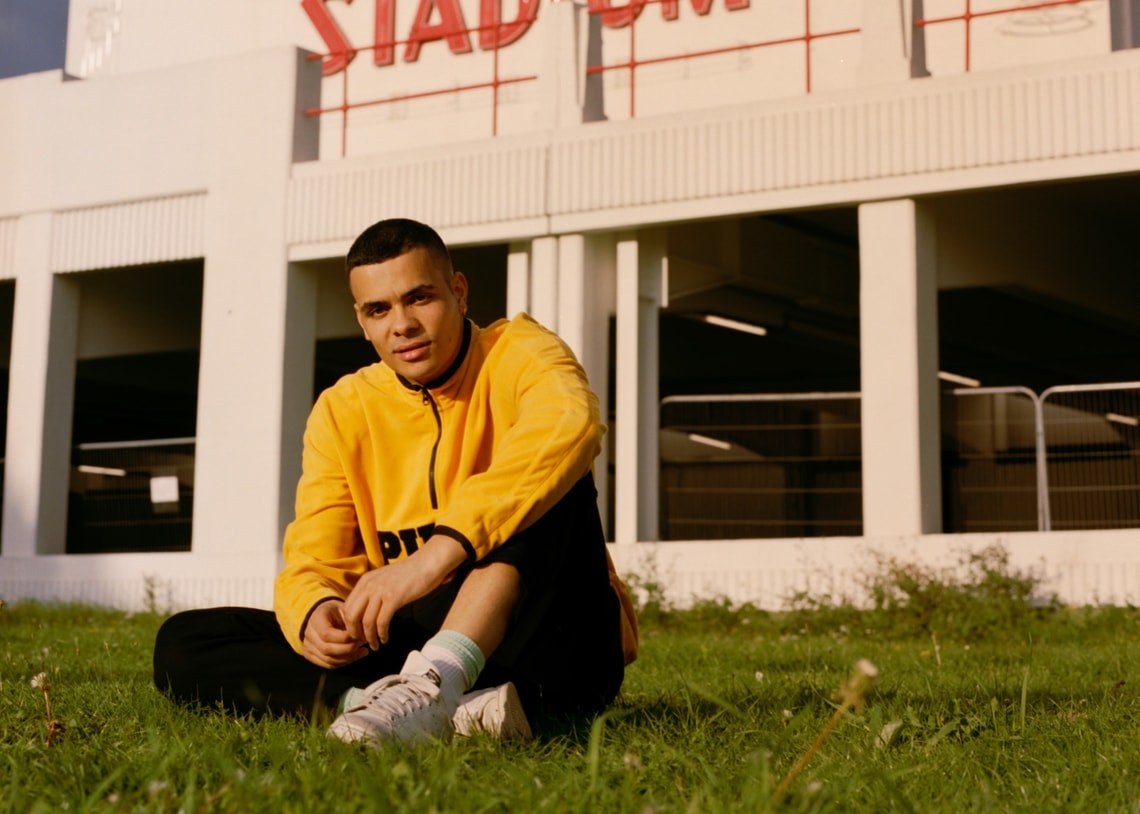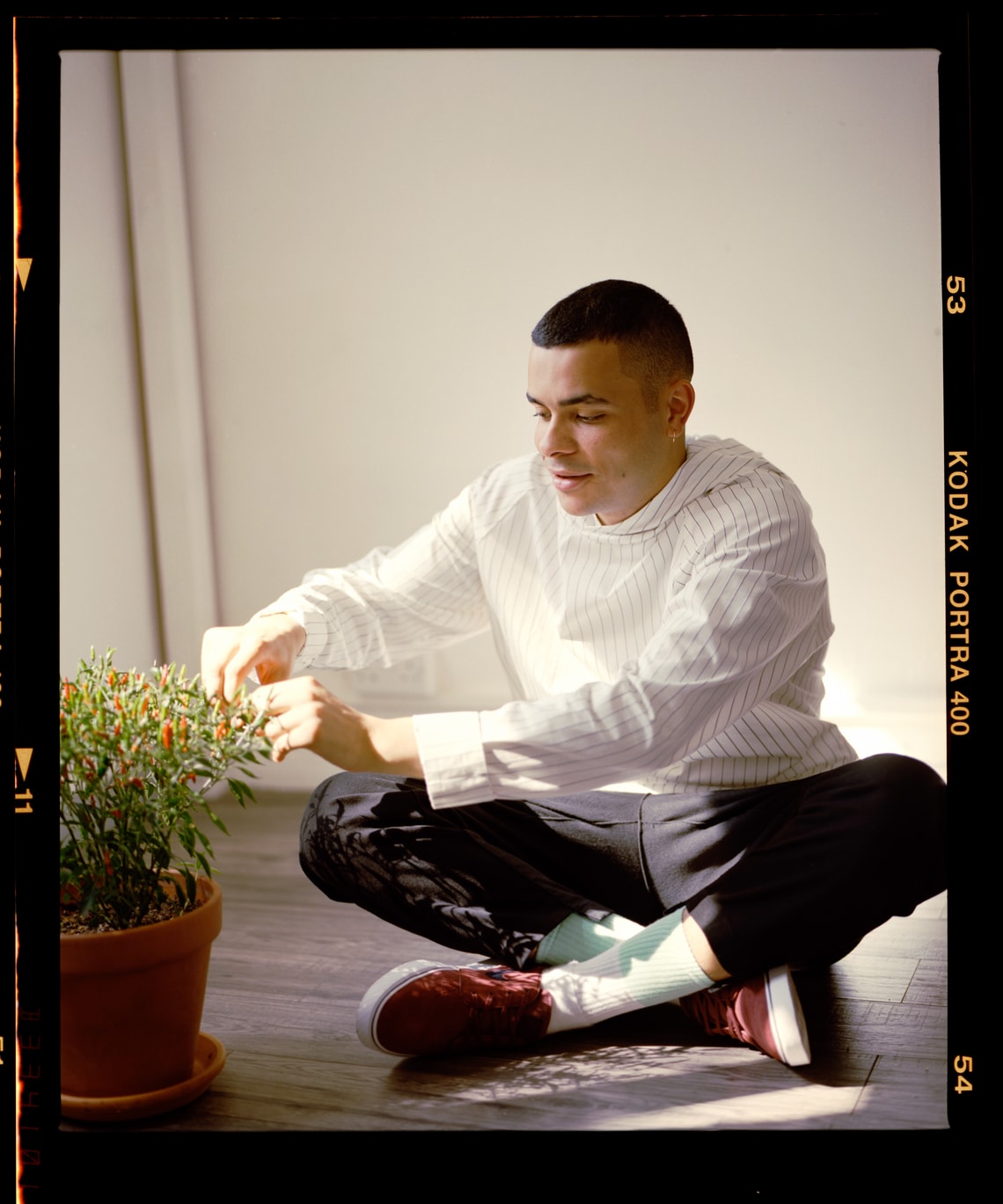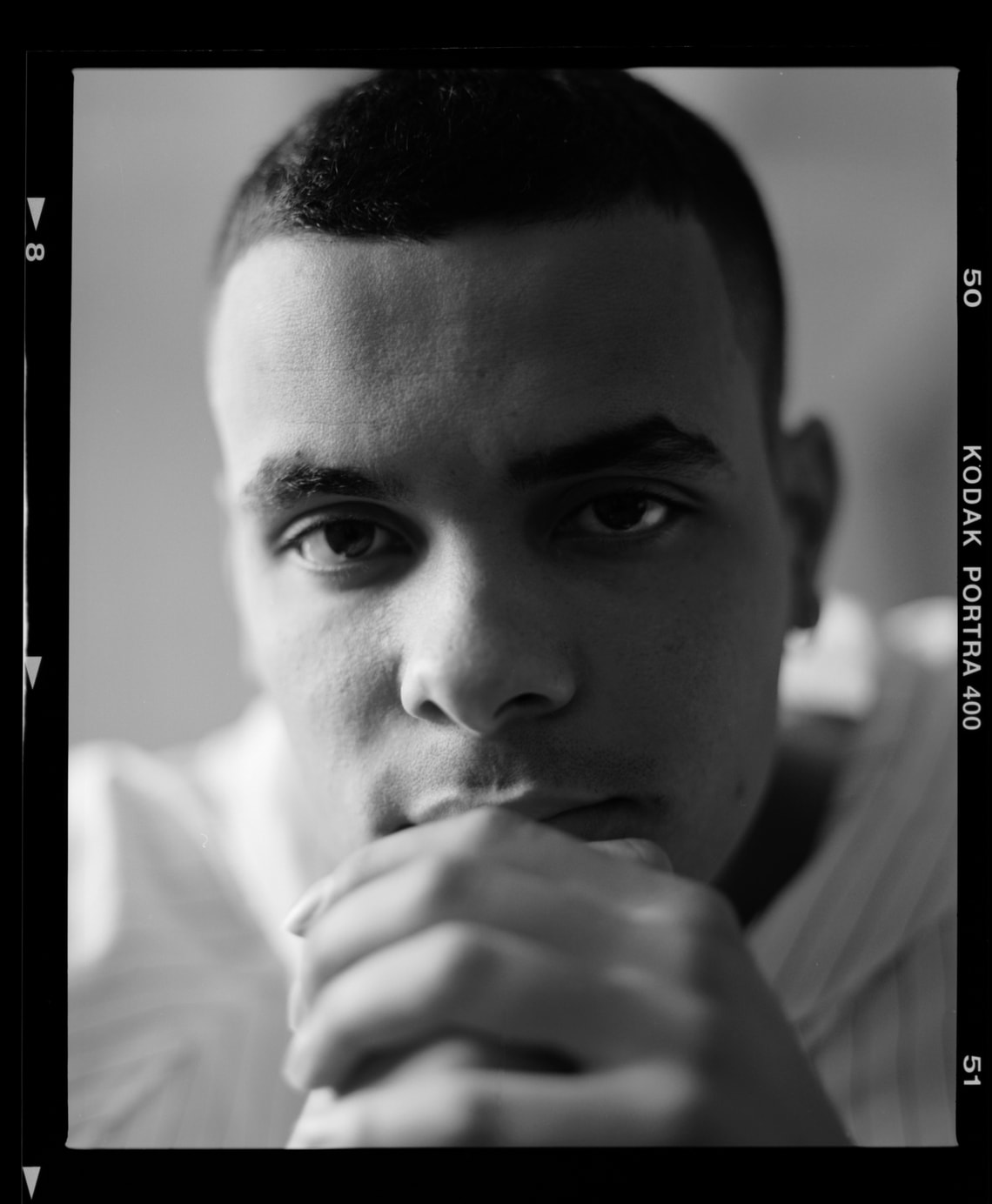
Ady Suleiman bares his soul with Memories, an intimate and unfiltered first album, which places him amongst the most talented artists of the Neo soul scene in England today.
Ady Suleiman has already received high praise since he’s joined the ranks of the new Neo soul voices in the UK and the US. At 25, he propels this often light-hearted musical genre into the peaks and valleys of his mental health, taking ownership of his illness and singing freely to an original soundscape. It’s enough to make us question not just our mental health but our “musical health” too…
In 2017, Ady Suleiman lived what every young soul singer dreams: he signed with a major label, worked with heavy-hitters like Joey Badass, Gilles Peterson, and Chance the Rapper, and booked big tours. One day, on a TV set, he had an epiphany. He left his TV appearance not with pride and ambition but submerged in anxiety. According to Ady, the waves of anxiety were so strong that it was sometimes impossible to live a normal life. He decided to talk about it in the pages of The Independent, after having become an ambassador of CALM (Campaign Against Living Miserably), an association that supports people with mental disorders. It’s within this ambassadorship that Ady reprised Bill Withers’ “Lean On.” Ady had no qualms about recounting his panic attack in the middle of a nationwide promotional tour. He told CALM:
“I felt like shit, but I was getting on a TV set, about to smile and pretend that I was happy and cool […] It was the first time I was overwhelmed by my thoughts and emotions […] I realized that I was suffering from anxiety and depression […] When you start your career, your job is to meet new people. But when you are going through something very difficult within yourself, it’s really hard to pretend that everything is fine.”

On this platform, Ady Suleiman bluntly broke down his saga within the music business. He explained that he stopped getting wasted and smoking weed. He also now sees a psychiatrist (It’s something he recommends to everyone and he affirms its normalcy by likening it to any other kind of medical check-up).
« Behind the manly, tough exterior, there often hides a hurt and vulnerable being. I like this juxtaposition of identities. »
So when we meet this young man, almost a year later, before a concert at the Yoyo, the trendy concert hall of the Palais de Tokyo in Paris, we are very careful not to judge him. What is immediately striking, however, beyond the polite professionalism and the hooded tracksuit, is his boyish face. Even more, behind his youthful, happy face is a sense of great maturity. He claims he is not a big reader, but he manages to articulate his emotions in an authentic way, without sensationalizing them or appealing to pity.
Ady shyly asks us permission before swearing. Yet, on his record, the “fucks” and other foul language are mixed with words of love. “It is true that it’s rather rare among the guys from the suburbs of Nottingham like me to reveal so much emotion. Swearing is the way we speak, but we also have a sweet side. Behind the manly, tough exterior, there often hides a hurt and vulnerable being. I like this juxtaposition of identities. I grew up in this ambiguous universe where you have make your own path and you no longer have to love beer and football.”

Like Ady, the record mixes the rough, urban, hip-hop beats with the sweet, soulful, and more commercial side. “The album talks about feelings, not so much mental problems. It’s more about how I lived with all of that as a young adult, because I wrote this record when I was 19.”
Ady, now 25, has only just released Memories. He had to break free from a major label and create his own label in order to release it. His label, Pemba, is named in homage to the island of the archipelago of Zanzibar where his father was born and where he feels both “at home and out of place.”
“This record took years to release because Sony, who had signed me, was constantly postponing its release. I ended up saying stop and I created Pemba. I don’t get any royalties, because everything is paid to Sony, but at least my music is available,” explains Ady.
The singer adapts to this in-between state on a day by day basis, switching between the hype world of LA rap with Chance the Rapper or Joey Badass, between the anxiety and loneliness of depression, between the showbiz crew, the neighborhood and the concert tours, between the industry and authenticity… Most of all, he can now live with wave of emotion that can sometimes leaves him feeling disconnected. Ady tells it in “So Lost,” a song about the moment where you return to reality after having lost touch and having had an out-of-body experience. “There’s a lot of anxiety that arises from all this,” says Ady. “Even if you haven’t suffered from serious mental disorders, everyone can relate to this song. If you party, if you lose a loved one, if you drink or take drugs, there’s always this disturbing moment where you return to reality and you realize you’ve been living between two worlds.”
Ady takes us on a trip down his “Memories,” and shows us how the sweet sound of soul can very well reveal our inner darkness.
Listen to Ady Suleiman on our Pan African Music playlist, on Spotify and Deezer.
Watch next: The Moment’, Intimate Unplugged Moment with Kae Sun

